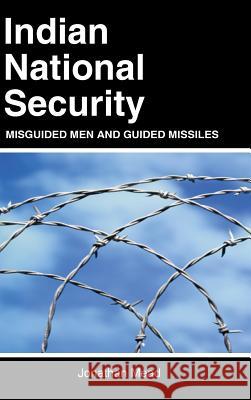Indian National Security: Misguided Men and Guided Missiles » książka
Indian National Security: Misguided Men and Guided Missiles
ISBN-13: 9789380502397 / Angielski / Twarda / 2010 / 286 str.
India: one billion people, one million problems, one nation. Five thousand years ago, Manu took a stroll along the banks of the Ganges. Fortuitously, for mankind, he encountered a fish, which warned him of a looming great flood, one that would destroy humanity. In the aftermath of the devastation, Manu's proteges were condemned to a life of suffering. Survival was tough. They walked the earth and toiled an unforgiving land. It seemed natural, therefore, that man should congregate, and by doing so, form communities - the logic being there was strength in numbers. But as cities flourished, it soon became apparent that the 'state' represented not only a safe haven for man but also posed a threat to his own security. With such a rich history, India has, all too sadly, witnessed this paradox more than most. With this in mind, the story of this book is simple: Man's struggle for survival is the most enduring aspect of a nation's security equation. And no better illustration of man's struggle than on the subcontinent where he has been forced to contend with famine, poverty, illiteracy, caste-based discrimination, communalism, internecine conflict, invasion, terrorism war and the spectre of a nuclear holocaust. Amidst this backdrop, it may seem ironic that the mainstream interpretation of Indian security has, by and large, focussed on the military. Why then do we gloss over the human aspects of security - is it through ignorance or do we feel somewhat queasy when confronted with such stark realities ? On this note, scholars have an obligation to paint an inclusive picture of India's security construct - one that encapsulates individual, societal, political, economic, military, internal and external dimensions. This book hopes, as Gandhi once remarked, to shine the torchlight within, and in doing so, offer a more comprehensive and realistic assessment of Indian National Security."











